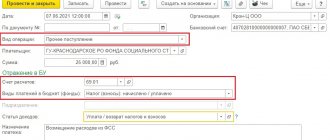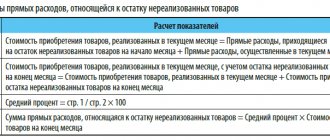If the court battle is lost, the losing party must reimburse the winner for legal costs. A significant amount of legal costs are transportation costs. How much can these expenses be reimbursed?
LEGAL CONSULTATION
According to the general rules established by clause 2 of Article 101 of the Arbitration Procedure Code of the Russian Federation, the costs of paying for the services of a representative incurred by the person in whose favor the judicial act was adopted are recovered by the arbitration court from another person participating in the case, within reasonable limits.
Important! The basis for the distribution of legal costs between the parties is the principle of compensation by the right side at the expense of the wrong.
To protect its interests in court, the company has the right to engage third-party lawyers, despite having its own lawyers on staff. In such situations, companies enter into an agreement for the provision of legal services, which sets the amount of remuneration and the procedure for reimbursement of legal costs.
Legal costs include: expenses for paying for the services of representatives, expenses for travel and accommodation of a representative, expenses for paying for the services of experts, specialists and translators, other expenses (for example, expenses for issuing a power of attorney to a representative in court, expenses for photocopying, obtaining paid certificates, copies documents).
DISPUTE RESOLUTION IN ARBITRATION COURT
What expenses are not considered legal and are not subject to reimbursement?
Expenses for payment for services provided at the pre-trial stage (legal examination, consulting services, negotiations on pre-trial settlement of a dispute) are not included in the category of legal expenses and are not subject to reimbursement (Resolution of the Plenum of January 21, 2016 No. 1, of the Presidium of the Supreme Arbitration Court of the Russian Federation dated 09.12.2008 No. 9131/08, dated 29.03.2011 No. 13923/10).
Important!
Costs associated with the consideration, resolution and settlement of a dispute out of court (subordination appeal, mediation procedure) are not legal costs and are not reimbursed by the losing party.
Transportation costs can be included in the contract price or compensated by the customer separately (in addition to the cost of legal services).
If the representative’s transportation costs are included in the price of the contract, then the court recovers such costs within the limits of the cost of legal services. And when determining the amount of compensation for expenses for representatives, the courts are guided by the explanations given in the Information Letter of the Presidium of the Supreme Arbitration Court of the Russian Federation dated December 5, 2007 No. 121.
According to the explanations of the Presidium of the Supreme Arbitration Court of the Russian Federation, the reasonableness of the costs of paying for the services of representatives is determined by the court based on such circumstances as the duration of the trial, verification of the legality and validity of judicial acts in several courts, the complexity of legal issues resolved during the consideration of the case, the established judicial practice of considering similar disputes , the need for a representative to prepare in a relatively short time a large number of documents requiring detailed research, the amount of remuneration of representatives in similar disputes and cases, the validity of attracting several representatives to participate in the case, the actual execution by the representative of the attorney’s instructions and other circumstances.
Courts may take into account the rates approved by the conference of lawyers of the Republics and territories, published on the corresponding official website of the bar association (Resolution of the Arbitration Court of the Far Eastern District dated April 27, 2018 No. A59-934/2016, Decision of the Arbitration Court of the Republic of Ingushetia dated May 14, 2018 No. A18-546/2018). For example, when considering the cost of services of representatives in the Stavropol Territory, the courts are guided by the “Recommendations on determining the amount of remuneration when concluding an agreement for the provision of legal assistance,” posted on the website of the Bar Association of the Stavropol Territory. Thus, the tariff for participation as a representative of the principal in civil and administrative proceedings in the court of first instance is set at 50,000 rubles. If the duration of the trial exceeds 3 court days, an additional payment is established in the amount of 10,000 rubles for each subsequent court hearing.
That is, such expenses have a limit, and therefore it is better to stipulate the obligation to reimburse transportation costs separately in the contract. But even in this case, they cannot always be compensated at the expense of the losing party.
Let us analyze court decisions regarding the reimbursement of travel expenses of a judicial representative.
LEGAL SERVICES FOR WRITING CLAIM STATEMENTS
Reimbursement of travel expenses for employees - amount of payments
Labor legislation does not contain any restrictions regarding the minimum and maximum amount of compensation. Therefore, any reasonable amount of payment can be established in the agreement between the employer and employee. Moreover, it is allowed to pay compensation to an employee even for a one-time use of his own car for business purposes. When calculating the amount according to stat. 188, the total amount can be divided into compensation for wear and tear of the vehicle during its operation and compensation for direct costs during operation (fuels and lubricants, repairs, etc.). In order to justify expenses, it is recommended to provide the LNA with a methodology for calculating the amount of compensation, taking into account the mileage of the car, self-reporting information, intensity of official use and other factors.
When taxing profits, it should be borne in mind that such amounts of compensation relate to other expenses, but only within the established norms (subclause 11 clause 1 of Article 264 of the Tax Code, clause 1 of Resolution No. 92 of 02/08/02, letter from the Ministry of Finance No. 03-03-06/1/465 dated 08/09/2011):
- For passenger vehicles – 1200 rubles. per month (with an engine capacity of no more than 2000 cc); 1500 rub. per month (from 2000 cubic cm).
- For motorcycles – 600 rubles. per month, regardless of engine size.
An example of calculating compensation for the use of a personal car
Let us assume that, by agreement between the trade and manager A.V. Grigoriev, the latter receives the following monthly payments:
- Compensation for the use of a KIA Soul 1.6 car – in the amount of 4,000 rubles.
- Reimbursement of gasoline costs according to the standards in accordance with the Order of the Ministry of Transport of the Russian Federation No. AM-23-r dated March 14, 2008 (8 l./100 km for the specified brand).
For July, the employee submitted a report to the accountant with attached gas station receipts, where he indicated the mileage of the car for the month = 750 km. The payment amount is:
- Monthly compensation = 4,000 rubles, of which 1,200 rubles are allowed to be included in income tax expenses. Excessive expenses in the amount of 2800 rubles. cannot be taken into account when calculating taxes.
- Reimbursement of gasoline costs = 8 x 750 km. / 100 km. x 40 rub. (price for fuel and lubricants) = 2400 rub.
Postings in company accounting:
- D 44 K 73 for 6400 rub. – the accrual of compensation to A.V. Grigoriev is reflected.
- D 73 K 51 for 6400 rubles. – the transfer of money to the employee’s card is reflected.
Travel in business class, in luxury carriages
Travel expenses for a representative in court must be reasonable and documented. Reasonable limits for transportation costs and expenses associated with the participation of a representative in court hearings of arbitration courts are an assessment category and are specified taking into account the legal assessment of the factual circumstances of each specific case.
Important!
Thus, one of the criteria of reasonableness when assessing transport costs and expenses associated with the participation of a representative in court hearings of arbitration courts is the cost of economical transport services.
In this connection, it will not be possible to reimburse the costs of a business class flight or travel in luxury carriages.
ARBITRATION LAWYER
How to write an application for travel compensation
To receive compensation, the employee must provide a statement describing the basis for payment. Supporting documents (receipts from gas stations, tickets, statements, etc.) are attached to the application. When traveling on business, money is issued in advance, and supporting documents should be attached to the advance report.
An application for travel compensation is made in simple written form. There is no unified form. Write your full name in the header of the document. and the position of the manager, indicate the name of the organization. Then your details - full name, position in the company.
In the text of the application, describe in detail the circumstances that are the basis for payment: with dates, references to regulations or legislative acts. Sign the application, indicate the date of preparation and submit it to the accounting department for review.
In the event that the performance of an employee’s official duties is directly related to frequent, often even daily, travel, the employer is obliged to pay him compensation for transportation costs. An employee can go on a trip in a personal car, on company transport, or on public transport - in any case, he will be entitled to compensation for transportation expenses.
EXAMPLE No. 1
The court indicated that, as follows from the information about the flight and the electronic ticket, the cost of the ticket Yekaterinburg - Moscow - Yekaterinburg amounted to 40,947.25 rubles, while the ticket was purchased for a business class flight, and therefore, these expenses cannot be considered reasonable and fully attributed to the plaintiff.
There are no documents indicating the absence of economy class tickets for a given date.
The average cost of a similar economy class flight does not exceed 7,000 rubles, which is indirectly confirmed by an air ticket from Ekaterinburg to Moscow (Resolution of the Moscow District Administration of June 21, 2017 No. A40-75074/2015).
In particular, one of the criteria of reasonableness when assessing the amount of transportation costs incurred is the cost of economical transport services; travel to the place of the court hearing was carried out in economy class (Resolution of the Administrative Court of the East Siberian District dated December 19, 2018 No. A74-7565/2017).
But even in the case of an economy class flight, the courts compare the cost of tickets from different carriers to assess the reasonableness of the travel costs incurred.
As noted in the Resolution of the Fifteenth Arbitration Court of Appeal dated January 26, 2018 No. A32-27972/2013, the difference in ticket prices between different carriers is insufficient and the case materials do not contain evidence of the real possibility of purchasing tickets at a cheaper price during this period. At the same time, the court also took into account the demand for the route (from capital to capital).
When determining the transportation costs to be reimbursed, the courts point to their excessive value due to the increased class of service of the carriages in which the travel documents were purchased.
COURT ORDER FOR DEBT COLLECTION
Payment procedure and amount of compensation
In order for expenses to be reimbursed, they must be confirmed. Such confirmation of expenses incurred by the employee is travel documents, to which is attached a corresponding application for travel compensation. Some companies do not consider it necessary to collect these documents and compensate employees with a traveling nature of work a certain fixed amount every month. But in this case, there is a high probability that the regulatory authorities will consider such payments not as reimbursement of expenses, but as an additional salary for special working conditions, and will impose appropriate taxes and contributions on them.
When the employer pays for the road to the place of rest, such payment is made at the lowest cost of the road by the shortest route. In accordance with Part 4 of Art. 325 of the Labor Code of the Russian Federation, a person can apply for compensation for travel before leaving on vacation, based on the approximate cost of the ticket. And the final payment is made upon return based on the provided travel documents.
EXAMPLE No. 2
The representative’s trip was accompanied by “1P” service class, that is, with increased comfort conditions.
Considering that the trip lasts less than two hours, these services, according to the plaintiff, are not justified and economical.
Based on the analysis of the Russian Railways website, the court found the transportation costs to be excessive, since the defendant did not provide evidence that there were no other tickets for sale at a more economical price and came to the conclusion that it was necessary to recover transportation costs in the amount of 3,160 rubles.
Thus, the court reduced the travel costs of the representative, since cheaper tickets for economy class carriages were on sale (Resolution of the Volga-Vyatka District Court of February 27, 2018 No. A43-13487/2016).
STATEMENT OF CLAIM FOR DEBT COLLECTION
Compensation for personal transport
Employees often use their personal vehicles to perform official duties: transporting goods, delivering reports, distributing goods. But the fact that the employee arrived at the office in his own car in the morning does not constitute grounds for assigning compensation.
The conditions for calculating and paying compensation for the use of a personal car must be discussed with your superiors and the agreements must be formalized in a special document - a contract or agreement on the use of a subordinate’s personal transport. Without a contract, you cannot claim compensation payments.
The amount of compensation is established by agreement (Article 188 of the Labor Code of the Russian Federation). There are no maximum or minimum restrictions by law; the employer and his subordinate can agree on almost any amount of compensation payment.
The employer should be aware of tax risks in terms of compensation for transportation costs. According to the current version of the Tax Code of the Russian Federation, the costs of operating an employee’s personal transport can be taken into account as part of other expenses within the approved standards (subclause 11, clause 1, article 264 of the Tax Code, clause 1 of Resolution No. 92 of 02/08/2002, Letter of the Ministry of Finance No. 03 -03-06/1/465 dated 08/09/2011). This means that only the compensation standard can be legally ignored by the organization when paying income tax, and everything above will increase its tax base. That is why in most organizations the amount of compensation for a personal car does not exceed this standard established by law.
Examples of amounts:
- for a passenger car with an engine capacity of 2000 cm³ or less, the amount of compensation cannot exceed 1200 rubles per month;
- if the engine volume is more than 2000 cm³, then compensation is due up to 1500 rubles per month;
- for a motorcycle, only 600 rubles are reimbursed. per month, regardless of the brand of motorcycle.
Costs under a car charter agreement
In one of the legal disputes, the court found transportation costs under a car charter agreement to be justified. The main argument was that transportation costs were incurred due to the lack of adequate bus routes and direct rail routes (according to information on the website of OJSC AvtoVAS).
The purpose of chartering a car was timely arrival at the court hearing and minimizing the costs of participating in the arbitration process, without resorting to hotel services (Resolution of the Volga-Vyatka District Court of January 24, 2018 No. A79-9529/2015).
YOU HAVE BEEN FILED AGAINST YOU FOR COLLECTION OF DEBT UNDER A LOAN AGREEMENT
What can you count on
The concept of compensation for expenses incurred is enshrined in Article 164 of the Labor Code of the Russian Federation. It is stated here that this definition refers to cash payments that cover the costs associated with the performance of work duties.
If we talk about specifics, then these expenses mean the following:
- use of an employee’s personal car for business purposes;
- purchasing tickets for public transport, including railway, air and waterways;
- using the services of a commercial taxi service, subject to the feasibility of such trips;
- rental of movable and immovable property, including the costs of its maintenance and service.
Important! Following the provisions of this article, the employer is obliged to reimburse the employee for all expenses incurred on business trips and business trips, provided that these expenses are made in the interests of the company. Moreover, all financial costs must be justified and supported by relevant documents: checks, receipts, travel tickets, etc.
Having understood the basic definitions, we will consider the features of compensation for each expense item separately.
Download for viewing and printing:
Article 164 of the Labor Code of the Russian Federation “The concept of guarantees and compensation”
Use of employee vehicles
If, due to official needs, an employee of an enterprise uses personal vehicles, he has the right to demand reimbursement of overhead expenses from the manager. This practice applies to installers, sales representatives and suppliers who, due to the nature of their work, cannot use public transport.
The following are subject to compensation:
- maintenance: refueling, washing, repairs, etc.;
- depreciation wear.
Please note that payment of compensation is possible only in cases where the possibility of using a personal car for business purposes has been agreed upon with the employer. In this case, the agreement must be in written form. The body of the contract must specify the terms of compensation payments and the amount of compensation.
If a company rents a car from an employee
This practice is relevant for cases when an enterprise does not have its own fleet of vehicles, and therefore enters into a vehicle rental agreement with employees. Here the procedure for compensation changes slightly, and the employee has the right to demand the following payments from his superiors:
- rent in the amount stipulated by the contract;
- car maintenance costs;
- costs associated with refueling and inspection;
- repair costs.
As in the previous case, a written agreement certified by the signatures of the parties is a prerequisite for this type of transaction.
Travel expenses
These may include the following types of costs:
- purchasing tickets, including travel passes for all types of public transport;
- additional expenses, for example, on long-distance trains a person pays for bed linen.
Such expenses are usually regulated by the internal regulations of the enterprise, and management approves the list of employees who may qualify for compensation payments. The possibility of such expenses is specified in the terms of the employment contract.
Compensation for taxi trips
Such expenses are possible in situations where we are talking about meeting partners arriving by plane or train. In exceptional cases, couriers can use the services of commercial carriers when there is simply no other opportunity to fulfill official duties.
In general, the procedure for reimbursement of expenses for a taxi trip does not differ from the options discussed above. This possibility must be provided for by the terms of the employment agreement or internal regulations of the enterprise.
Important! With compensation for such expenses, everything is not so clear. Compensation is possible only in cases where the use of the services of commercial carriers was truly necessary and advisable.
Additional expenses
Here we are talking about business trips to another city, region or outside the Russian Federation. For obvious reasons, it is not enough to buy a travel ticket here, so in addition to transportation costs, employees are reimbursed for:
- costs for obtaining a visa and passport;
- commission fees and state duties associated with the preparation of travel documents;
- purchasing health insurance;
- purchasing an international auto liability insurance policy Green Card (if it is necessary to travel abroad using personal transport);
- daily food expenses;
- rent of hotels or apartments.
Important! The law obliges the employer to pay compensation, but does not regulate travel methods and other technical nuances. Therefore, the manager has the right to independently determine the travel route: type of transport, specific hotels, certain gas stations, etc. Failure to comply with these instructions may serve as a reason for refusal to reimburse expenses, if such a possibility is provided for by the terms of the contract.
Selecting the type of vehicle
When assessing the reasonableness of transportation costs, courts take into account not only their lower cost, but the time of departure and arrival, the comfort of the vehicle and place of residence, time savings (efficiency), as well as the extent to which the chosen type of transport allows the representative to appear at the court hearing on time and in a state that allows him to carry out his functions. The duration of a business trip, the time of departure and arrival is determined by the participant in the process, taking into account the time of the court hearing, the necessary rest time, etc.
Important!
The right to choose a vehicle should be determined by the criteria of necessity and reasonableness, if this does not go beyond the scope of business customs and does not bear any signs of excessive expense. Thus, the issues of choosing a mode of transport, including the advisability of using a particular type of transport, as well as the choice of place of residence, are within the competence of the company, based on production and other needs.
For example, traveling by rail (taking into account the remoteness of the city of Irkutsk from the city of Moscow) in this case is clearly unreasonable due to the significant time spent on travel, while using air transport (travel in economy class) is more expedient and meets the criterion of reasonableness (Resolution of the AS of the East Siberian District dated 08/02/2018 No. A19-21340/2016).
Accounting for transportation costs to be reimbursed to employees
In accounting, the amounts of accrued compensation are grouped by the debit of the 73rd account, which is used for settlements with personnel for other transactions. The corresponding accounts will be “cost” accounts. The postings will be like this:
Dt 20 (23, 25, 26, 44) Kt 73 - reflect the accrual of compensation.
Payment of benefits will take place according to the credit of account 73: Dt 73 Kt 50 (51).
Tax accounting reflects all amounts of compensation except those amounts by which the standard indicators are exceeded.
Example
Sales representative of Kora LLC Magomedov A.P. performed labor duties in a personal car with an engine capacity of up to 2 liters. According to the current regulations, he is due compensation in the amount of 5,600 rubles.
The accounting entries will look like this:
Dt 26 Kt 73 — 1,500 rub. — we charge standard compensation;
Dt 91.2 Kt 73 - 4,100 rub. (5,600 – 1,500) is compensation that cannot be accepted in tax accounting.
The arising permanent tax liability is explained by the fact that the amount of accounting costs is higher than in tax accounting. Next you should proceed in accordance with the standards of PBU 18/02.
Dt 99 Kt 68 - 820 rub. (4100 × 20%) - we show the conditional consumption.
In this case, personal income tax is not withheld from the compensation amounts.
***
Transport expenses can be reimbursed by the employer if travel by personal transport is agreed upon with management, is reasonable and is documented. In accounting, the amounts of compensation are reflected in full. In tax accounting, compensation payments are taken into account in the part that does not exceed the standard amounts.
EXAMPLE No. 3
The court did not establish any grounds for reimbursement of expenses for the purchase of an air ticket in the name of T.V. Milcheva. on the route St. Petersburg - Moscow - Vladivostok - Moscow - St. Petersburg in the amount of 63,410 rubles.
So, having found out that the place of residence of Milcheva T.V. is the city of Petropavlovsk-Kamchatsky, and in St. Petersburg she was on personal issues not related to the consideration of the case, despite the customer’s consent to compensation for expenses incurred by the representative and the fact of their subsequent payment, the courts recognized that the cost of the air ticket was in the name of Milchevoy T.V. on the route St. Petersburg - Moscow - Vladivostok - Moscow - St. Petersburg in the amount of 63,410 rubles. in the situation under consideration does not meet the criteria of necessity and cost-effectiveness of legal costs (Resolution of the Far Eastern District Court of 09/04/2018 No. A24-1622/2017).
Paying for travel on public transport
Some employers reimburse their employees not only for travel and vacation expenses on tickets, but also for daily trips by public transport to their place of work, when the place of work is outside the city or remote from the residential sector. Some organize transportation, while others pay for travel.
Payment for travel to the place of work in public transport is established on an individual basis. The law does not tell us anything on this topic; the norms and amounts are the prerogative of a particular employer.
Payments of compensation for travel (except for business trips) should be classified as payments in terms of remuneration for labor. This means that the employer will have to calculate and pay insurance premiums. This opinion was expressed by officials in Letters of the Ministry of Finance dated March 13, 2018 No. 03-15-06/15287 (clause 1) and the Federal Tax Service dated October 30, 2017 No. GD-4-11/ [email protected]





